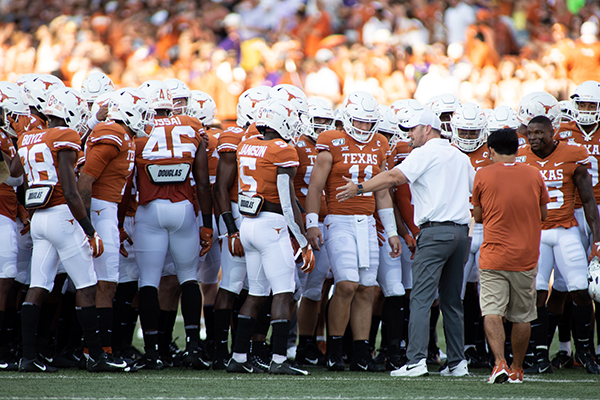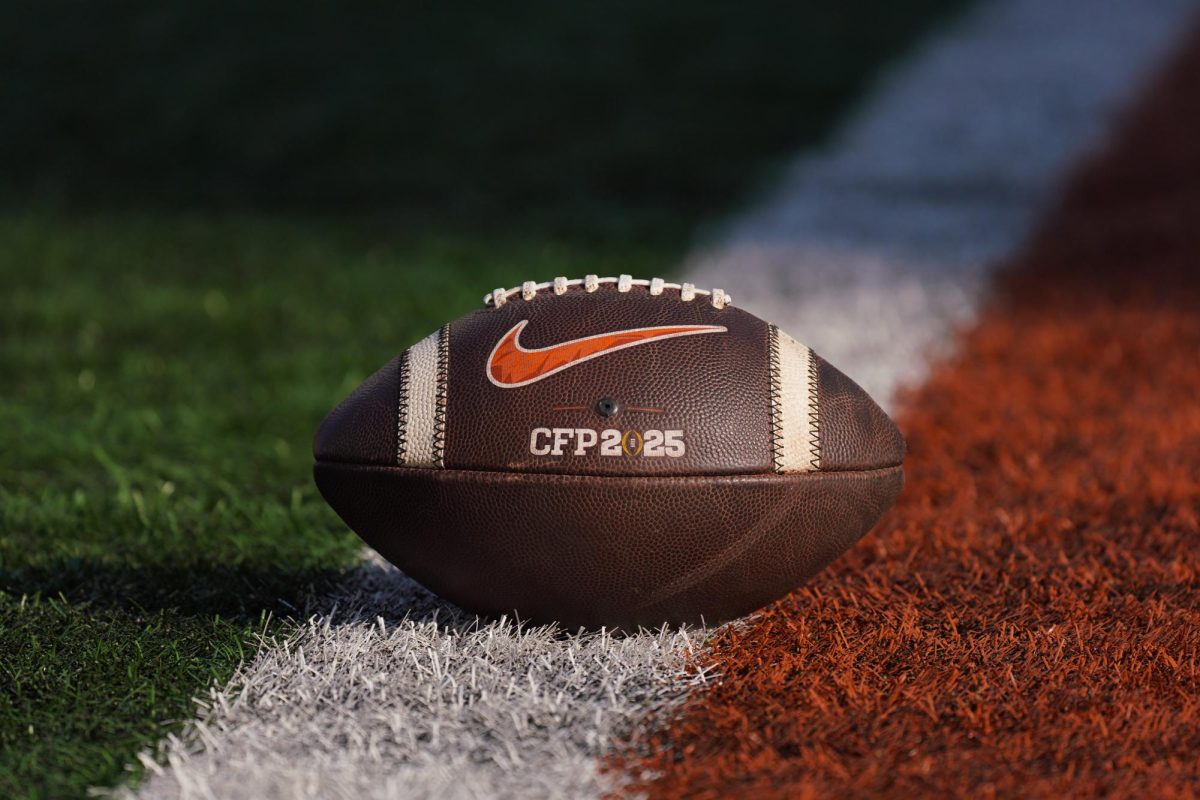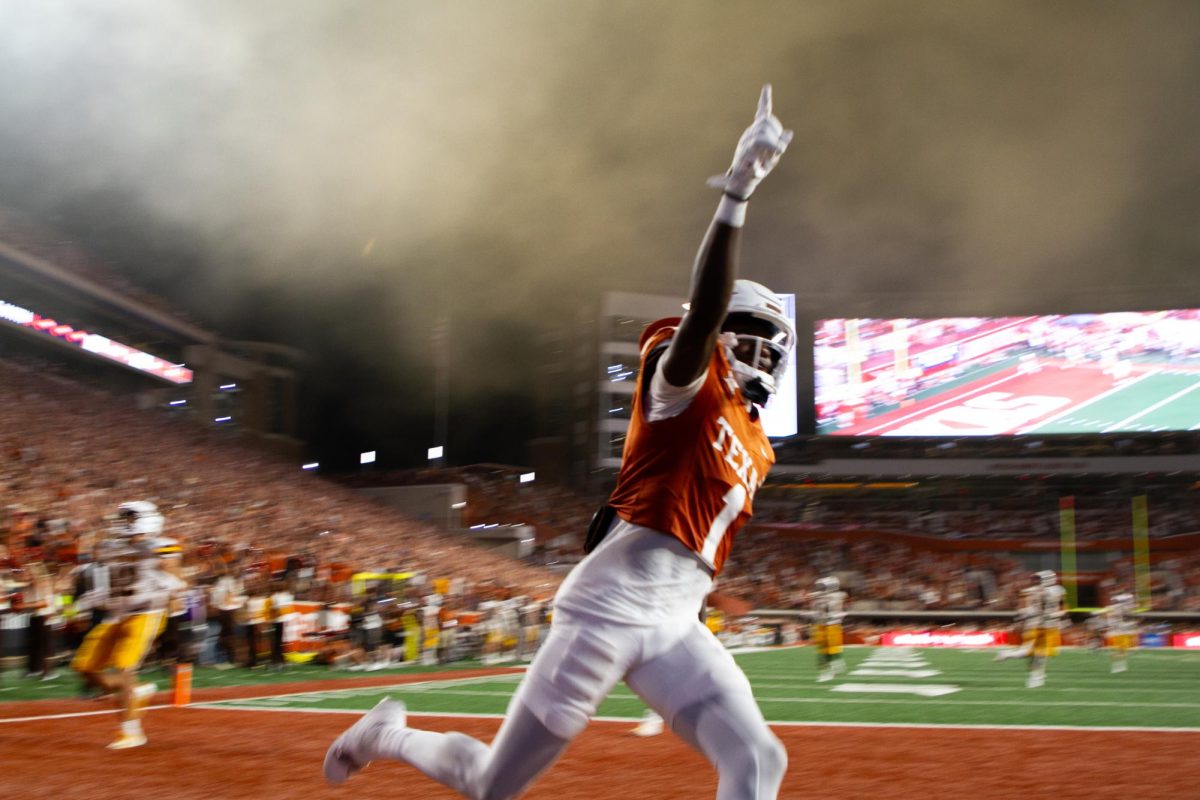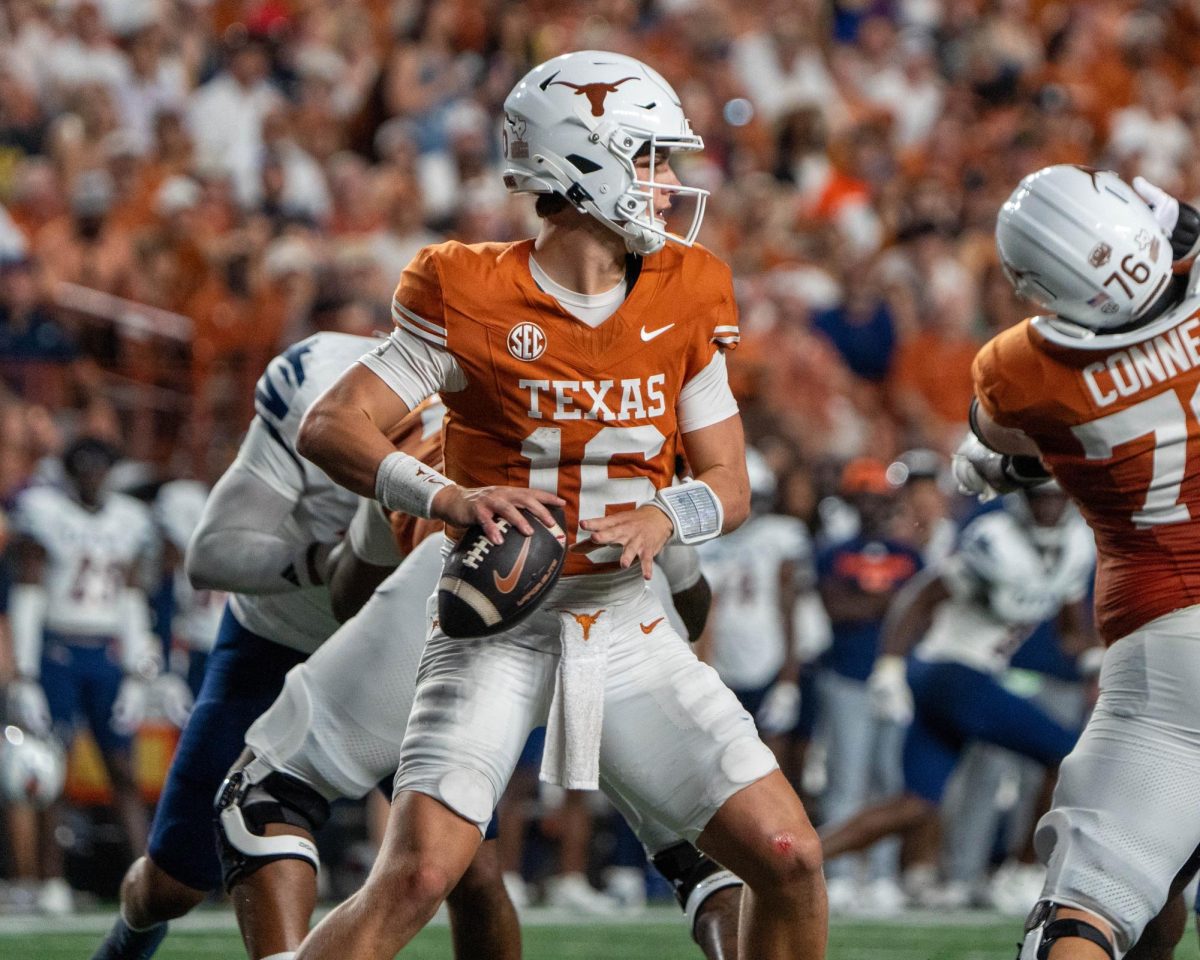Texas football players will wear face shields under their helmets this season — not to protect them from cleats to the face or fingers to the eye, but from COVID-19. This is life in 2020.
Players and staff don’t like wearing face coverings, football head coach Tom Herman said, but they understand it’s necessary.
“It doesn’t feel normal having to pull your mask up or wearing a shield on the bottom of your face mask or standing 6 feet away from guys,” Herman said in an Aug. 7 press conference. “But I think for the most part our guys are pretty used to that new normal.”
The Big 12 decided Aug. 11 that it would play a 2020 football season, despite cancellations from other conferences around the country. Frequent testing and mask-wearing will help foster athlete safety and keep the season alive, but medical experts say players could still be vulnerable this fall even if they follow protocol on the field.
“It’s not just the activities such as the practices and the games where disease transmission is possible,” Dr. Mark Escott, Austin-Travis County interim health authority, said in an email. “They are going to see each other at meals, recreation and throughout their normal daily routine.”
If athletes aren’t vigilant off the field, they could face worse consequences than a canceled season. CBS Sports reported that one reason the Big Ten conference elected to postpone its football season is that league doctors found at least 15 players had developed myocarditis, an inflammation of the heart muscle, after contracting COVID-19. Myocarditis reduces the heart’s ability to pump blood, causing rapid or abnormal heart rhythms, according to the Mayo Clinic.
In an Aug. 15 press conference, Herman acknowledged these risks and the need for his team to stay disciplined, noting that upward of 90% of the team is taking classes online, and his players know the social sacrifices they’ll have to make for a successful season.
Senior defensive lineman Marqez Bimage and senior running back Daniel Young have opted out of the season, but senior quarterback Sam Ehlinger said in an Aug. 18 press conference that he thinks players are safest on campus.
“Texas is taking the best care of us and has every single detail thought out to protect us from the virus,” Ehlinger said. “And we feel more comfortable being here than if we were at home.”
Ehlinger’s opinion may hold some validity. Texas announced June 18 that 13 football players had tested positive for COVID-19 when they arrived to campus for voluntary workouts. Texas has reported no other positive cases on the team since then.
But there’s no telling how long athletes can sustain this laser focus, at UT and beyond. Texas’ rival Oklahoma boasted zero positive tests from July 8 to July 29, but announced Aug. 15 that nine players tested positive for the virus after returning from a weeklong break.
The return of students to campus could also complicate things at UT, as it has around the country. At the University of North Carolina at Chapel Hill, 130 students contracted the virus between Aug. 10 and Aug. 16. At the University of Notre Dame, off-campus parties led to 222 new cases, including five on the football team, Notre Dame announced Thursday. North Carolina canceled all in-person classes for the semester, and Notre Dame paused in-person learning. Both universities are still scheduled to play football.
For now, the Longhorns will play too. Ehlinger is confident in Texas’ ability to keep players safe, and so is Herman.
“(We) tell (parents) and swear to them that we’re going to treat their sons like ours,” Herman said. “The proof is in the pudding right now in terms of how we’re handling it as a department and as a program.”





















